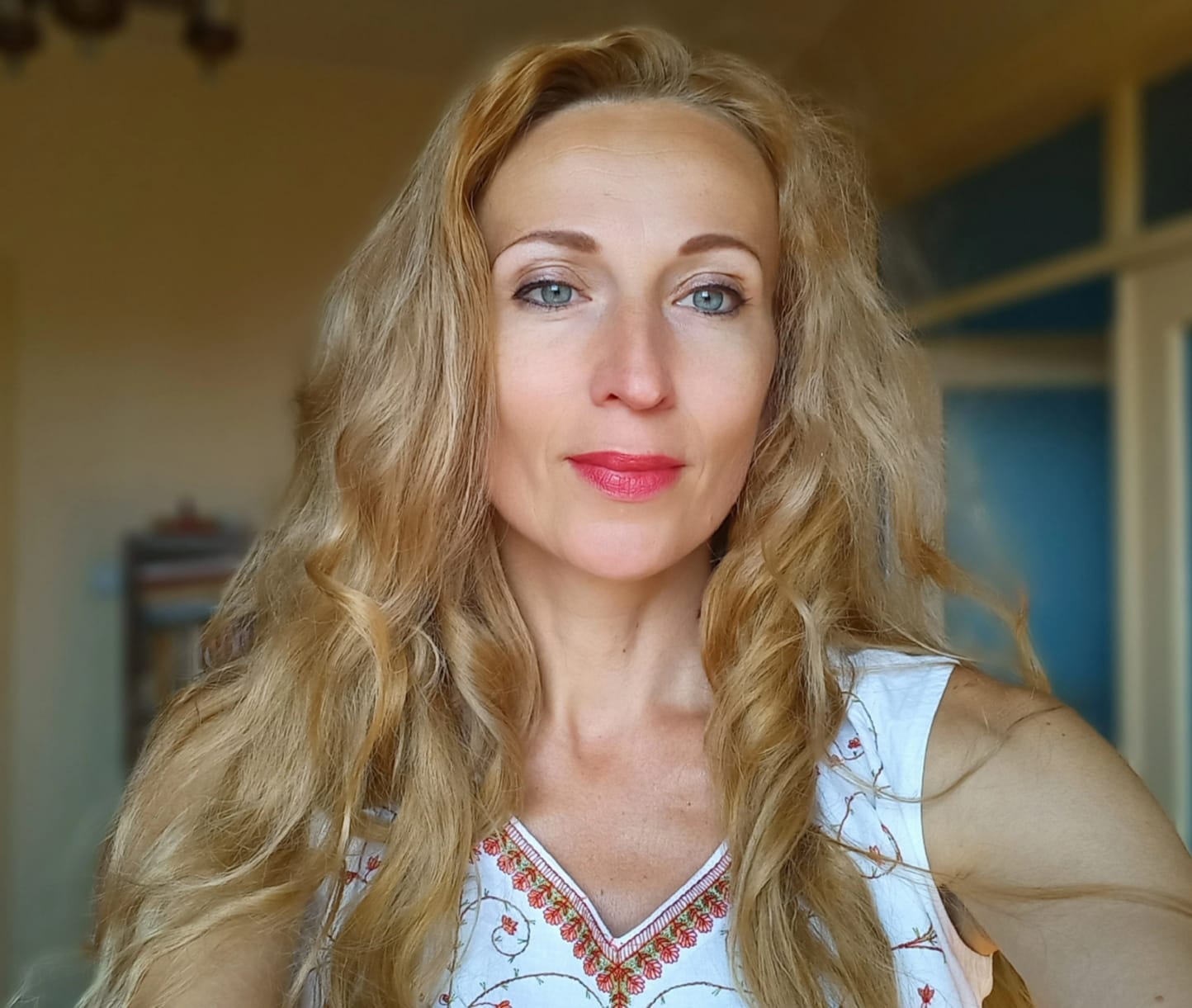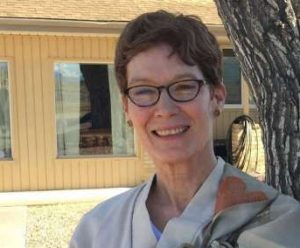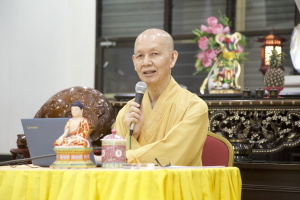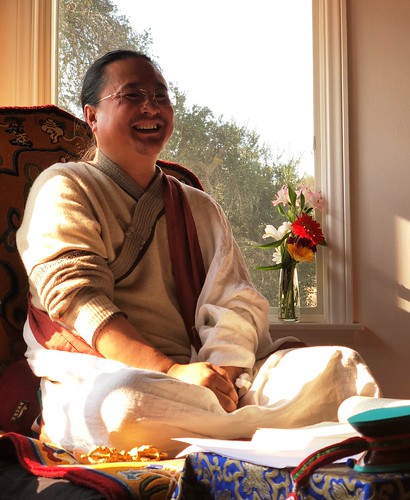
Sexuality in Tibetan Buddhism is an intriguing and controversial topic. The recently published book Karmamudra: The Yoga of Bliss (Sexuality in Tibetan Medicine and Buddhism) inspired me to discuss this subject with its author—the world famous Tibetan doctor, and yoga and meditation teacher Dr. Nida Chenagtsang. His book aims to dispel misconceptions about the place of sexuality in the Tibetan Buddhist tradition. It presents the “union practice” or “yoga of bliss,” also known as Karmamudra, according to the Tibetan medical tradition of Yuthok Nyingthig. Karmamudra involves yogic exercises, utilizing sexual energy and integrating the orgasmic state with meditation. This unique practice provides simple methods to work with passion and transforms desire into a source of blessings, health, and spiritual growth.
Buddhistdoor Global interviewed Dr. Nida about conceptions of sexuality and sexual health in Tibetan Medicine, and about one of his recent projects: thePure Land Farms, which are aimed at spreading knowledge of Sowa Rigpa (traditional Tibetan medicine).
Buddhistdoor Global: What is the place of sexuality and tantric sex in the Tibetan Buddhist tradition?
Dr. Nida Chenagtsang: In the West there is a big misunderstanding that the word “tantra” equals sex. Tantra is about authentic spiritual training; it is about all aspects of our human life experience, of which sex is just one part. In the Tibetan Buddhist tradition, we have many different kinds of practices that help us work with all the different aspects of our huge dynamic life process. For example, there are the Six Yogas of Naropa, which address our waking state, sleep state, and our death experience. There are so many different types of people, each with different personalities and habits—some, for instance, like to sleep a lot or are vivid dreamers, so for them it is good to focus on Clear Light Yoga (for deep sleep) or Dream Yoga. Others have deep fears surrounding the death process and the afterlife, so they should train in the death practices of Bardo (the intermediate state) and Phowa (transference of consciousness) Yogas. In the same way, Karmamudra is the perfect practice for people who don’t know how to properly handle or work with their sexual desire and energy, so that this powerful force may be transformed and become beneficial, rather than destructive. The Vajrayana practices are designed to address different needs in life; it is not required that everyone practices tantric sex.
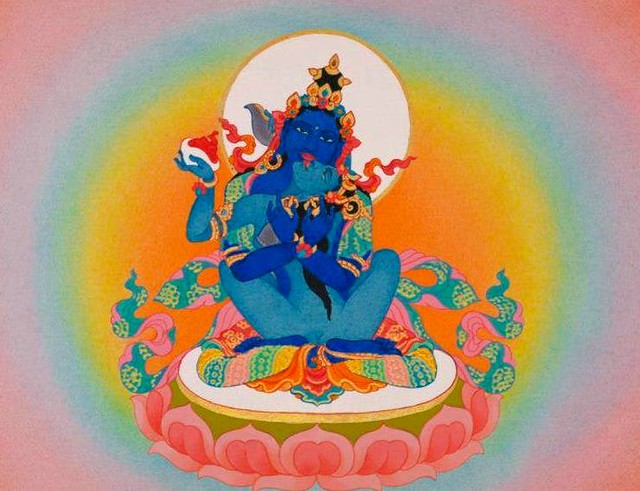
BDG: What do you think about the statements in some Buddhist tantras that it was the bliss of sexual union that enabled Shakyamuni Buddha to attain enlightenment?
DNC: According to many Tantric texts, such as the Kalachakra Tantra and the Guhyasamaja Tantra, Shakyamuni Buddha was transformed into one of the highest Anuttarayoga Tantra deities and then he transmitted the teachings of sexual union. We cannot say for sure whether this was his path to final enlightenment, or whether he recognized that this, too, was a method for achieving spiritual attainment after he attained enlightenment, but he transmitted these teachings for us. I am not so sure about that part, but either way, according to Vajrayana Buddhism, there is no doubt about the fact that Shakyamuni Buddha is somehow connected with these teachings. Of course, Sutrayana followers disagree with this—this a big discussion. But as I mention in my book, Shakyamuni was a prince, he was married, he was a father, so of course he knew all about sexuality. How much he integrated this into his spiritual path differs according to the Tantrayana or Sutrayana view and is, of course, a big and controversial topic.
BDG: What is sexual health according to the Yuthok Nyingthig tradition?
DNC: Sexual health is a topic related to Sowa Rigpa; it is not directly related to the Yuthok Nyingthig. In Tibetan medicine, we talk about different lifestyles, one of which is the “routine” lifestyle, which refers to our daily behavior. Tibetan medicine does not suggest that sexuality is the only or the most important aspect of our lives, but it acknowledges that sexuality is a natural part of life for lay people. The traditional medical texts also describe particular types of health issues that can arise for monastics, who don’t engage in any sexual activity. Sexuality is therefore considered very important, both in the prevention of disease and also in the treatment of certain kinds of illnesses. This is a medical question, not a spiritual one. Sexual health is now also becoming a big topic in modern medical science—sexual dysfunctions, psychosomatic issues, or psychological problems connected with sexuality are all issues that are being discussed in modern medicine, and traditional Tibetan medicine did not ignore this important topic. In your question, you are asking about the Yuthok Nyingthig tradition, but my book is not only about Yuthok Nyingthig, it is also about Sowa Rigpa as taught in the Four Tantras—the four volumes that are the foundation of traditional Tibetan medicine. As a doctor, I felt it was important to discuss sexuality—not only from a spiritual perspective, but also from a medical one.
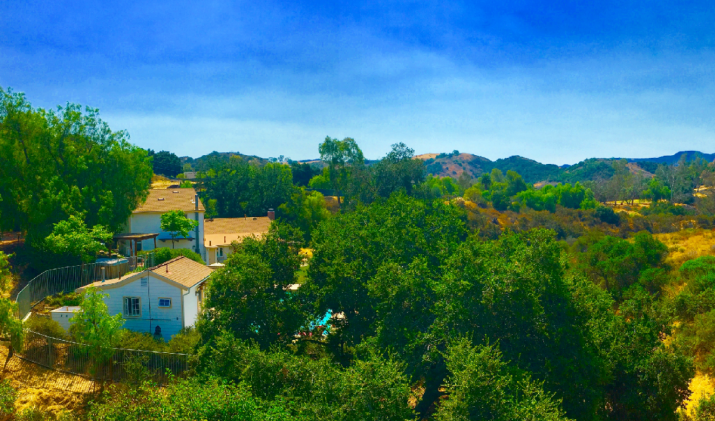
BDG: One of your recent projects is the establishment of the Pure Land Farms, a 10-acre sanctuary in Topanga, California. Can you tell us about the aim of this project? Do you plan to include Karmamudra teachings in its program?
DNC: I have always called myself a “farmer” of Sowa Rigpa, planting seeds of Tibetan medicine all over the world. So it has always been a dream of mine to have an actual farm with a botanical garden full of healing plants where I can educate people about the herbs as well as produce Tibetan herbal formulas. Another aim of the Pure Land project is to create an official school of Tibetan medicine, where serious students can train intensively and where the general public can come for short workshops and seminars. We are also constructing a temple, called Yuthok Ling (the “place” or “sphere” of Yuthok) to hold regular retreats, teachings, and group practices in order to continue the lineage of this unique Yuthok Nyingthig tradition. In Yuthok’s non-sectarian spirit, the temple will of course be open to practitioners of every tradition. When I return to the United States on my annual teaching tour this September, I will be giving three days of Karmamudra teachings from my new book. The Pure Land Farms is a very unique place. It is completely rural and secluded, but since it is just on the edge of Los Angeles, so it is very easy to access. It can be a real healing sanctuary for busy urban people. This fits very well with the Yuthok tradition, which is a path of integration, rather than one of isolation, and it is a path that is especially suitable for modern people who are not like practitioners of ancient times.
See more




